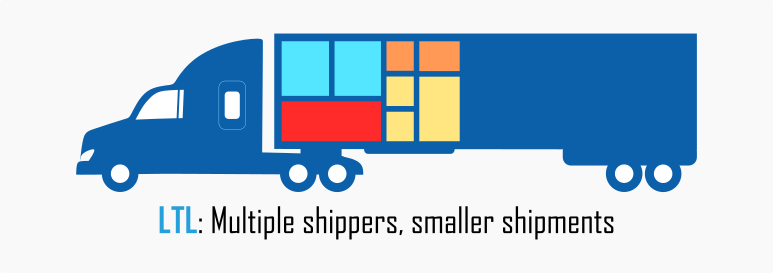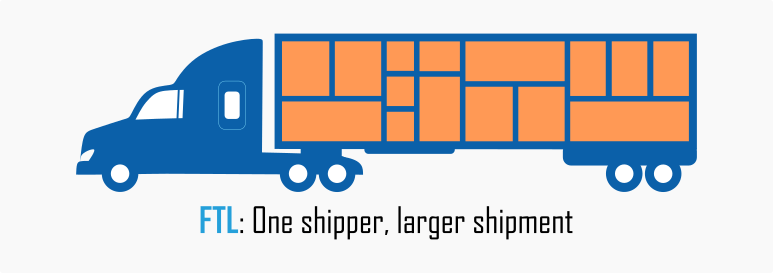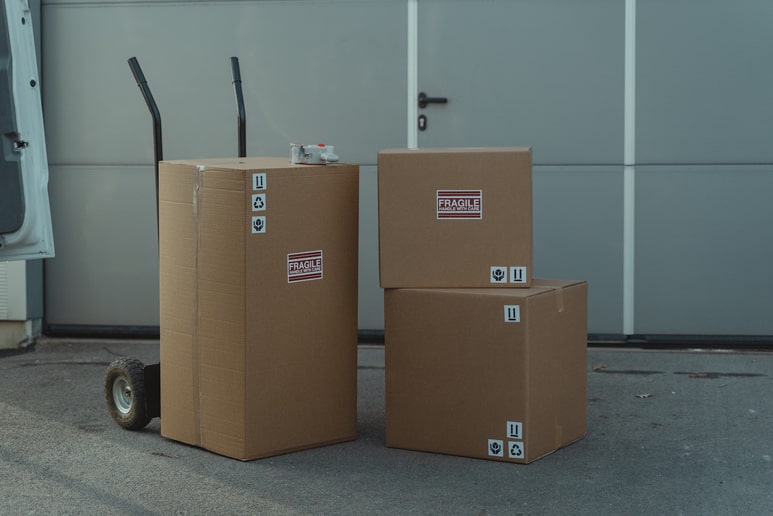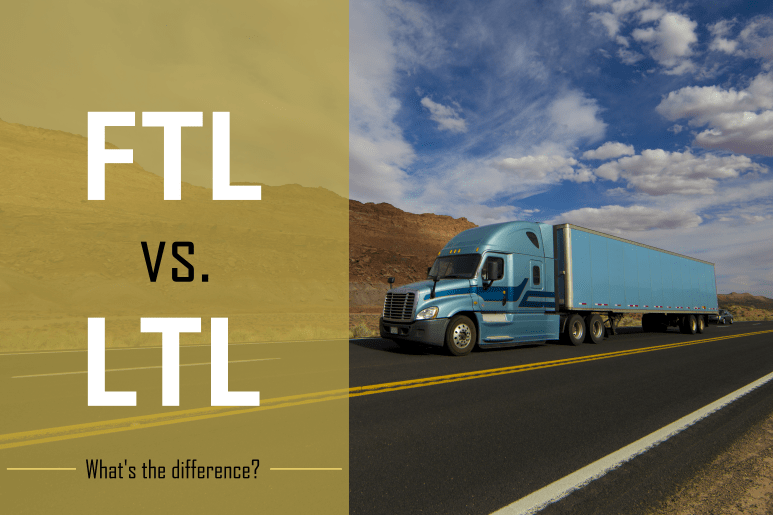FTL vs LTL Shipping: What Is The Difference?
FTL and LTL are two important terms you will often hear in the transportation industry.
Which option is ideal for you depends on several factors, such as the size and weight of your shipment, the type of cargo, the value of the goods, the expected delivery time, etc.
In this article, we will take a closer look at the differences between LTL and FTL in order to help you make the right decision when choosing the method of transporting your goods.
What does LTL stand for?
LTL stands for less-than-truckload and refers to bulk shipments.
This means that your cargo will share space with the goods of other shippers.
Several shipments are combined in one vehicle to use the space most optimally.
Generally, if your shipment weighs less than 20,000 lbs, you should use LTL transportation.

This is a great option for transporting goods that are not particularly sensitive (typically smaller shipments) and is especially useful for the transportation needs of small businesses.
The easiest way to organize LTL transport is to hire a freight forwarder. We can help you with this in a simple and fast way.
Here are the major advantages of LTL shipping.
- Lower transportation costs, because you’re only paying for what you ship.
- Quicker delivery times because in many cases LTL shipping can be a faster shipping method.
- Service options. For example, you can use different shipping options within LTL such as lift gate, inside pick-up and delivery, limited access, expedited shipping, etc.
- Send smaller shipments.
What does FTL stand for?
FTL stands for full truckload and refers to full loads. FTL, as a mode of transportation, is commonly used for large shipments, which take up an entire truck or at least close to it. More than half of the cargo in the US is shipped with FTL.
With FTL, your cargo is the only one in the vehicle, so you have the exclusivity to fill the entire space with your goods.

FTL has several advantages compared to alternative shipment, LTL, or collective storage:
- For shipments large enough to fill or nearly fill the entire trailer, full loads are cheaper.
- Full loads are much less burdened by restrictions such as the size and weight of goods.
- For FTL shipments, the transit time is faster. These shipments arrive faster at their destination because they carry one commodity.
- Along with the price and speed of transport, an important element in deciding on the type of transport is the safety of the goods. Since your goods are the only ones on the vehicle, your safety is greater. The loading area is reserved exclusively for the transport of your shipment.
- You also have more flexibility and control over your shipment.
- Transportation of dangerous goods.
Differences between LTL and FTL
The biggest difference between FTL and LTL transport options is the economy.
Bulk loading is a cheaper option, as you only pay for the space you use.
Another key difference is transit time. Your goods are the only ones on the vehicle, the route is planned in advance, and the transport time is faster and very predictable.

In the case of collective loads, the vehicle stops at several locations, which means that the delivery pick-up time will also require greater flexibility on your part.
If you decide for full loading, the sender will load your goods at the loading point, and they will be unloaded at the delivery point.
With bulk loading, you have to count on increased handling of goods, storage, and the use of multiple modes of transportation.
Have this in mind if your load is sensitive or fragile.
Here are a few guidelines that can help you decide on the type of transport that best suits your needs.
You will choose the LTL option if:
- You are transporting a smaller quantity of goods.
- You are flexible in terms of pickup and delivery times.
- Your goods are not particularly sensitive.
- There are no special requirements regarding loading and unloading.
You will choose the FTL transport option if:
- You are transporting a large shipment.
- You need firm delivery and collection dates.
- You have sensitive or fragile goods.
- You don’t want additional manipulation of the goods.
- You are transporting expensive goods.
Conclusion
LTL is not better than FTL and the opposite is true.
The final decision between FTL and LTL shipping will depend on the cost, time, and handling requirements of your shipment.
In many cases, LTL will provide a cheaper option for smaller loads, but if your load is heavy for its size, irregularly shaped, or takes up more than half of the truckload, it makes sense to get pricing for both options.
Sometimes it is advisable to use FTL, even when your goods do not fill the entire space in the vehicle.
We are at your disposal to find the most efficient and economical way to transport your goods.



